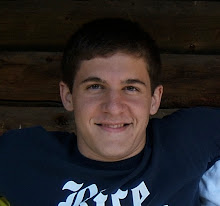Because we work five or six days a week, weekends become our best chance to experience the culture and see some of the things India has to offer. However, we haven't really had a chance to do much on the weekends since we've gotten here. Last week we went to the slums, but aside from that, we've really only been able to do things that are within walking distance--which isn't much. Thus, we were quite excited to have someone to take us around and see a bit more of Pune. Before work this morning we went on a short walk on the hill that overlooks Pune with Dr. Kelkar and Dr. Joshi. This is the second time we've done it, but this time Dr. Kelkar brought his son, Sagar, and Dr. Joshi brought his 20-year-old daughter, Vinita, along with us. After climbing the hill we went out to breakfast with Dr. Joshi and his daughter, who Dr. Joshi told to take us out at some point (apparently he's found our weekends a bit lacking as well).
Tonight we were looking for some way to spend our evening that didn't involve being in our apartment on our computers, so we called Vinita and asked if she wanted to go to dinner with us. She already had plans, but she invited us to come along with her and her friends to Kiva's, a local restaurant. And thus we were introduced to some of what college life in India is like. In essence, it seems like college students have similar interests around the world. Thus, it was easy to forget that we were in the middle of a developing country, rather than a sports bar in the United States. Linkin Park, Justin Timberlake and Michael Jackson were thundering through the speaker system, and a giant projector showed recent highlights in sports (though of cricket, not football or basketball).
One of the really interesting things I found is that most of the college students here seem to speak primarily in English with one another. This is a real change for us, since at the hospital nearly all the conversations occur in Marathi, the local language. In addition, Vinita and her friends were all wearing stylish Western clothing, and even their slang sounded familiar to us as college students. Ironically, the only time we felt clearly aware of the fact that we weren't at home in the United States was when a group of white people walked into the restaurant. As there aren't many Western tourists in Pune, seeing Americans and Europeans is something of a rarity, so seeing them was made us realize that even though we felt very much a part of their culture, we were essentially still outsiders.
Yet the fact that we really did feel a part of that community is telling. The world is becoming a much smaller (or flatter) place, and perhaps nowhere is that more apparent than in our lives as college students. From our perspective, the lives of people our age seem to be transcending cultural boundaries, as certain cultural identities become less "quintessentially American." In talking to Vinita I was surprised at how much interests we shared in common. We watch some of the same movies, speak the same language, listen to the same music, and even discuss the same things.
These cultural ties are surely strengthed by the fact that our generation has easier access than ever to traveling abroad, as it is both encouraged and feasible. Everyone in my cohort has been abroad several times, and many of the Indians we met tonight had been abroad as well. Thus, we are no longer limited by the narrow cultural box we were born into, having seen a much wider world around us. However there are certainly dangers to this new cultural flexibility, because many parts of our cultural identity may be lost, both widening the chasm between our generation and the generations before us and leaving us drifting without the anchor of cultural ideals.
This begs the question of what makes this generation so different. Sixty years ago, our world was recovering from the shock of being split by facism and world war, and thirty years ago, our world was still deeply divided by communism and cold war. Today, the chains those differences placed on our ability to reach around the world have been largely broken, and my generation now has the freedom to easily communicate and connect with people on the other side of the world. We now live in a world where I can stay in contact just as easily with someone in India as I can with someone in Indiana. The communication barriers of language and distance are slowly disappearing, and along with it, the sense of disconnect with the people of other countries. I do believe that my generation will be unlike any generation before us. We are the generation that will, in a very real sense, usher in the 21st century--hopefully a century where we come together and set aside nationalist and cultural differences to take a giant leap forward in the history of mankind.
Subscribe to:
Post Comments (Atom)

60 years ago BOTH worlds were going through changes...
ReplyDelete